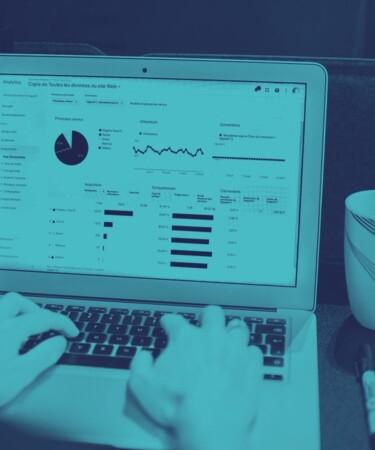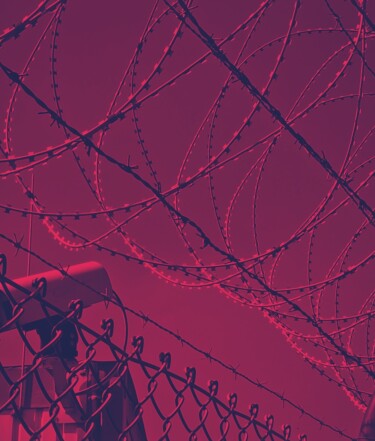
Monitoring of online examinations
We successfully went to court against the use of proctoring software: universities are not permitted to excessively monitor students.
Together with a student and the independent association of student bodies, we filed a lawsuit in 2022 against the use of surveillance software at the University of Erfurt. In November 2025, the Thuringian Higher Regional Court ruled that the university was not allowed to process biometric data – in this case, the software used the data for facial recognition. This shows that the online examination practices of many universities during the pandemic interfered impermissibly with students' fundamental rights – their right to privacy and their right to control their own data.
REMOTE MONITORING USING FACIAL RECOGNITION AND COMPUTER ACCESS AT THE UNIVERSITY OF ERFURT
The Wiseflow software used at the University of Erfurt was therefore highly problematic: In order to detect attempts at deception using artificial intelligence, in particular facial recognition, it processed highly sensitive biometric data and transmitted it to the cloud service provider Amazon Web Services. Numerous studies also show that facial recognition does not work for Black people and people of color, or has a higher error rate. Accordingly, such software often has a discriminatory effect.
The software also posed a threat to students' IT security. By installing the spyware, students were forced to relinquish some control over their own computers, which store a great deal of highly personal data. This poses considerable risks to data security, as an IT report commissioned by us shows.
Students are required to take exams. The surveillance was unreasonable, especially since there are significantly less intrusive alternatives, such as observation and alternative exam formats like open-book exams.
Our successful lawsuit sends a strong signal against disproportionate surveillance — including in other areas, such as the workplace. The Erfurt Regional Court initially dismissed the lawsuit in November 2024, ruling that the plaintiff had not suffered any damage. The court left open the question of whether the use of the software was lawful. The plaintiff was represented by attorneys Elisabeth Niekrenz, Tilman Herbrich, and Christian Däubleder of the law firm Spirit Legal.
After we appealed the ruling, the Thuringian Higher Regional Court ruled in November 2025 that the processing of biometric data during proctoring is unlawful because it violates Article 9 of the General Data Protection Regulation (GDPR). The GDPR states that biometric data may only be processed with consent. Because there was no real alternative to online exams with proctoring software in the case of the students, the court ruled that they had not effectively consented to the data processing. The court also did not consider the “substantial public interest” required by the GDPR to be present.
Disproportionate video recording at the distance-learning university of Hagen
Just like many other public and private universities, the distance-learning university Hagen provides in a special Corona regulation that certain examinations are video-monitored. Students are not only supposed to activate the camera and microphone and share their screen, but the recordings are also recorded and saved.
However, in order to prevent attempts at cheating, it would be sufficient to observe the students during the examination - just like in examinations in the lecture hall. In addition, there are alternative examination concepts such as open-book examinations. Recording and storing the data is therefore unnecessary and disproportionate. The regulation also does not provide for a clear deadline for the deletion of the data. The recording therefore violates the General Data Protection Regulation and the right to informational self-determination.
Therefore, together with a student from the distance-learning university, we filed an emergency application with the Higher Administrative Court of North Rhine-Westphalia. The aim was to ensure that the examination scheduled for 8 March 2021 would not be recorded, but at most observed by means of video transmission. Lawyer Wilhelm Achelpöhler from Münster represented the applicant.
Stored recordings may be practical from the perspective of the examining authority to prove attempts at cheating. However, this does not justify serious encroachments on fundamental rights such as video recording - even more so in a domestic setting.
The Higher Administrative Court of North Rhine-Westphalia dismissed the urgent application on 4 March 2021. The decision is not based on a detailed examination of the legal situation, but merely on a weighing of consequences. The court's press release explicitly states that the "legality of the recording and storage cannot be clarified in the summary proceedings". In particular, the court did not decide whether the recording was proportionate. It also expressed doubts as to whether the regulations on deleting the recordings were specific enough.



